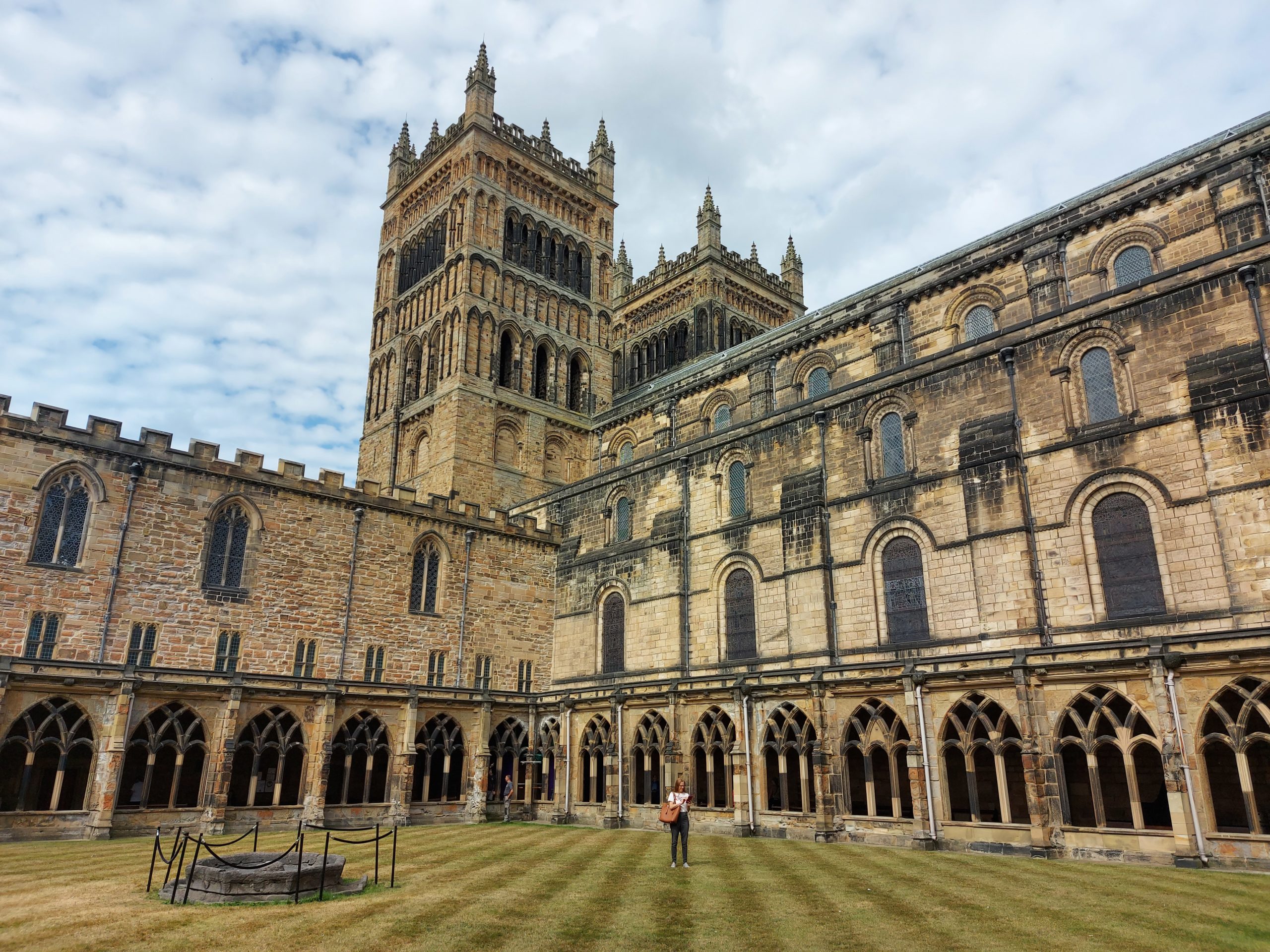Visiting Durham Cathedral, UK
The spectacular Durham Cathedral is a stunning monument that dominates the Durham cityscape on a rocky prominotory next to the castle high above the Derwent River.
I’ve already written about the stunning views afforded by climbing those daunting 325 steps to enjoy tower views over all of Durham and the surrounding countryside.
Today, Durham Cathedral is recognized as a UNESCO Heritage Site.
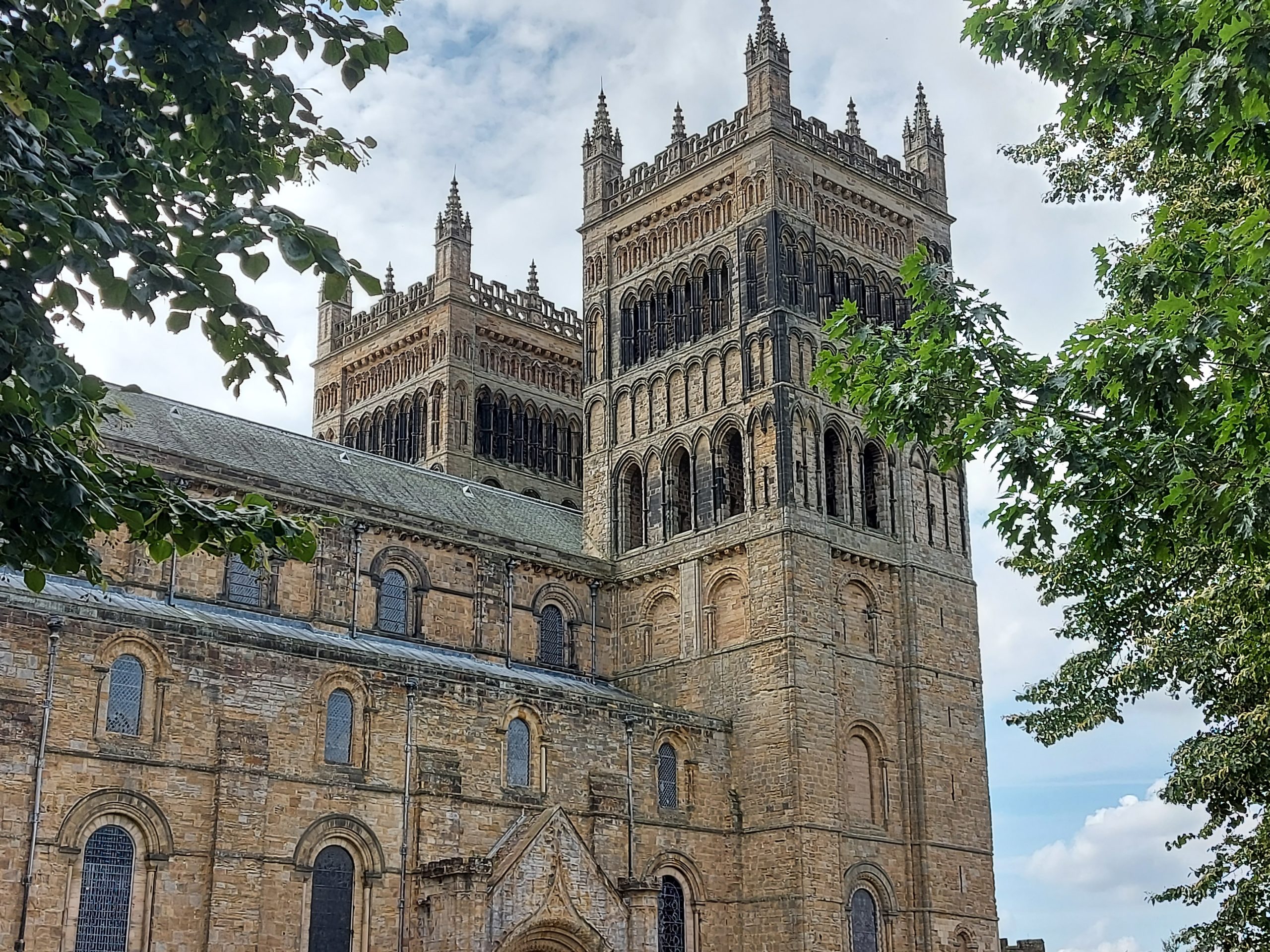
Construction on the cathedral began in 1093, and was completed in just forty years. It was built to house the remains and relics of Saint Cuthbert, whose body and relics were brought to Durham in 995. They were housed in an earlier structure.
But the arrival of Benedectine monks to the area initiated the drive to build the current cathedral, and to further develop the walled, medieval town, and – eventually – the university.
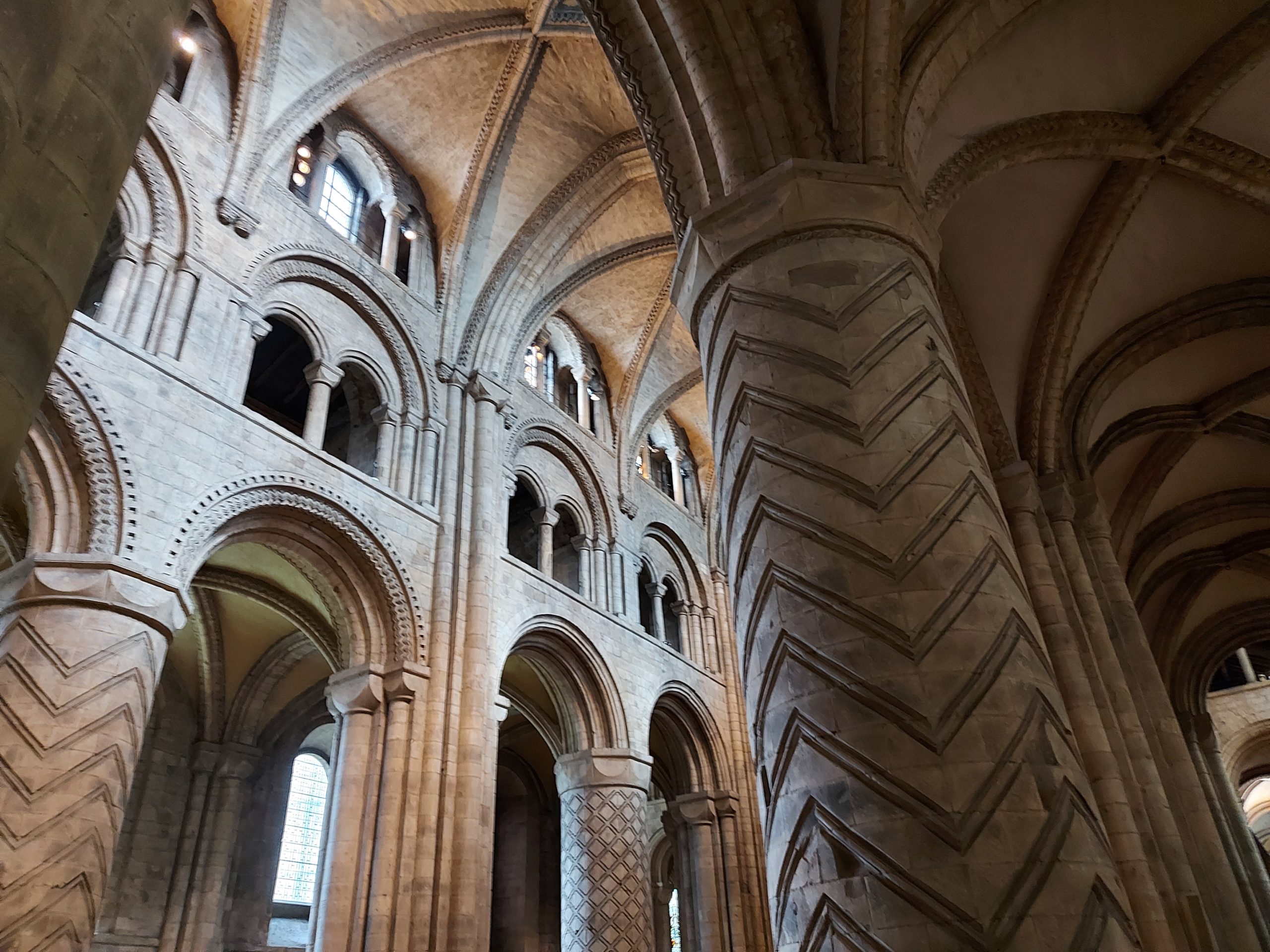 The dramatic nave has remained remarkably intact, and would have awed the flows of visitors who reached this cathedral on their pilgrimage to see St Cuthbert’s relics.
The dramatic nave has remained remarkably intact, and would have awed the flows of visitors who reached this cathedral on their pilgrimage to see St Cuthbert’s relics.
The geometric patterns are matched on either side of the nave.
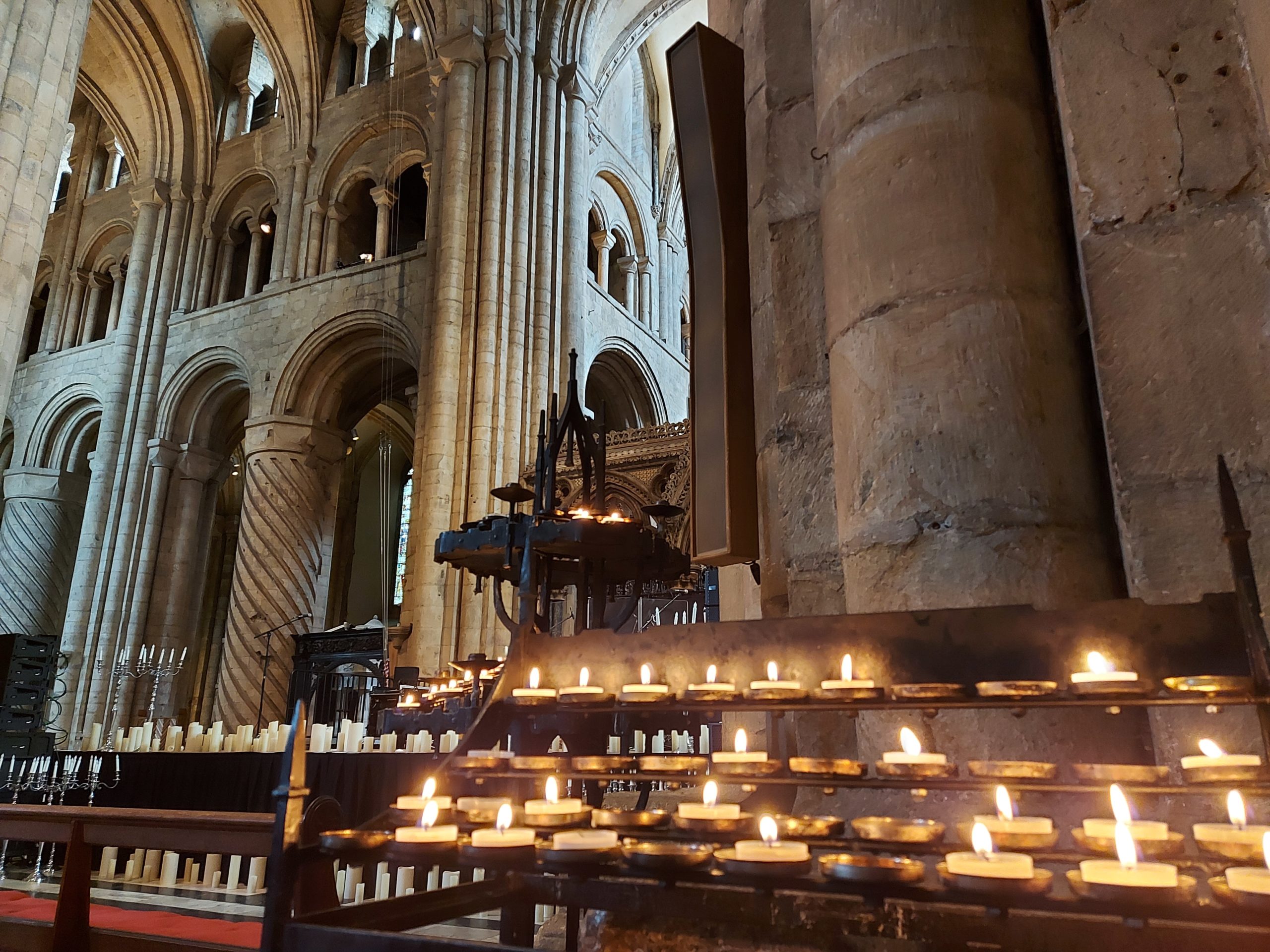
Also buried in this cathedral is the so-called “Father of English History”, the monk and scholar Bede.
Bede was born in about 673 and entered into the monastery, where he was revered as a theologian, historian, scientist and poet – a type of pre-Renaiassance Renaissance man.
Those of us in Rome love the Venerable Bede’s famous musings on a beloved Ancient Roman monument – and the sigbificance of Ancient Roman culture and the Eterna City: “As long as the Colosseum stands, Rome shall stand; when the Colosseum falls, Rome shall fall; and when Rome falls, the world will end.”
Bede died in 735, but his bones were later stolen (we presume) by a monk in 1022 and brought to be interred in the Durham Cathedral.
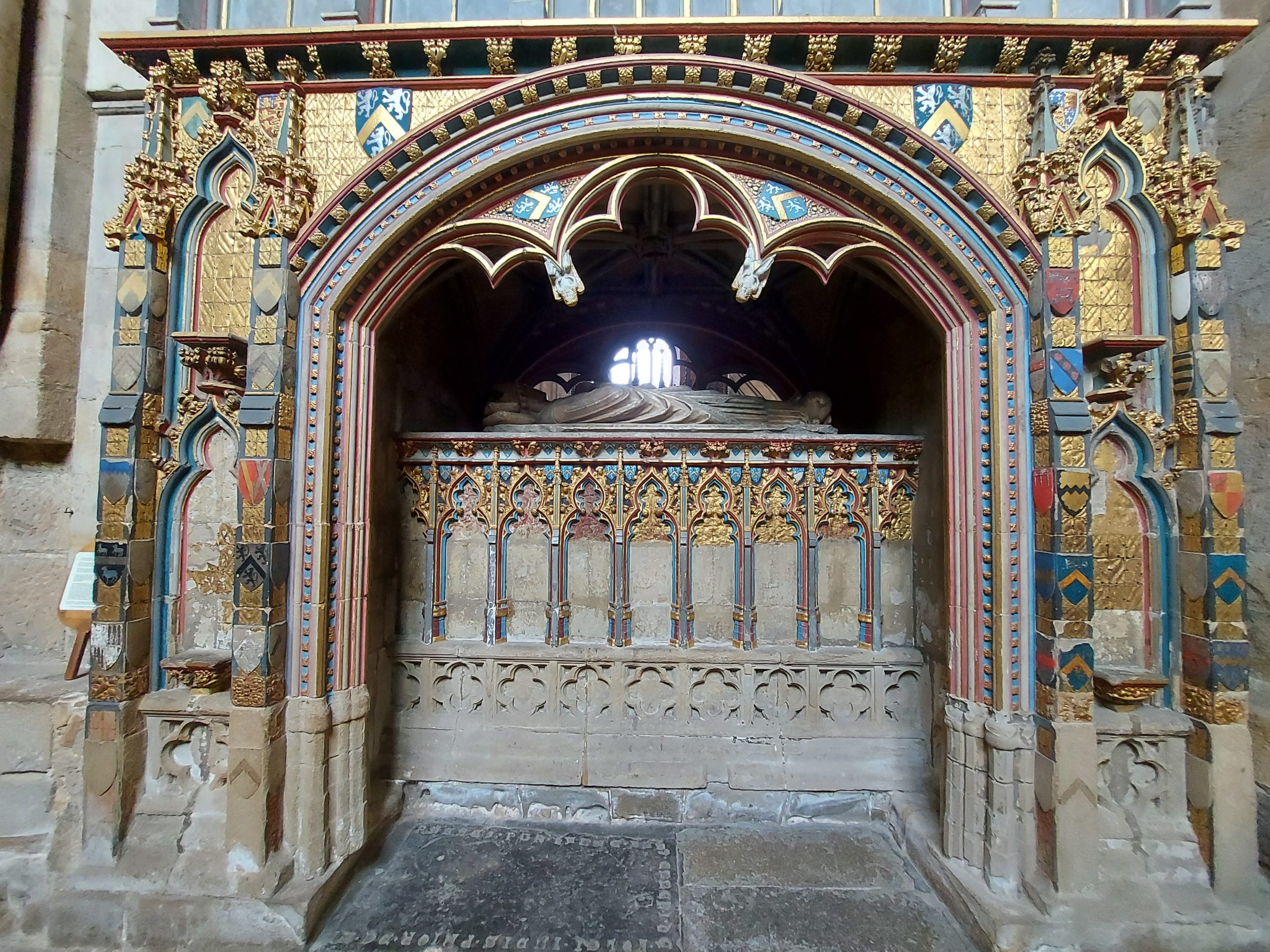 The cloister offers stunning views of the church and the towers.
The cloister offers stunning views of the church and the towers.
This would have been a hive of activity during the period where teh Bedeictine monks inhabited the cathedral – a place to exercise, study and to copy manuscripts.
Here you can also see acarving of the famous lines about the cathedral by Sir Walter Scott:
Grey Towers of Durham
Yet well I love Thy mixed and massive piles
Half church of God, half castle ‘gainst the Scot
And long to roam these venerable aisles
With records stored or deeds long since forgot
Enjoy your visit to this beautiful and historic cathedral – and save energy to get up those stairs to enjoy the tower views.
Medieval bellringers were clearly the elite athletes of their era … check your fitness level against theirs!
